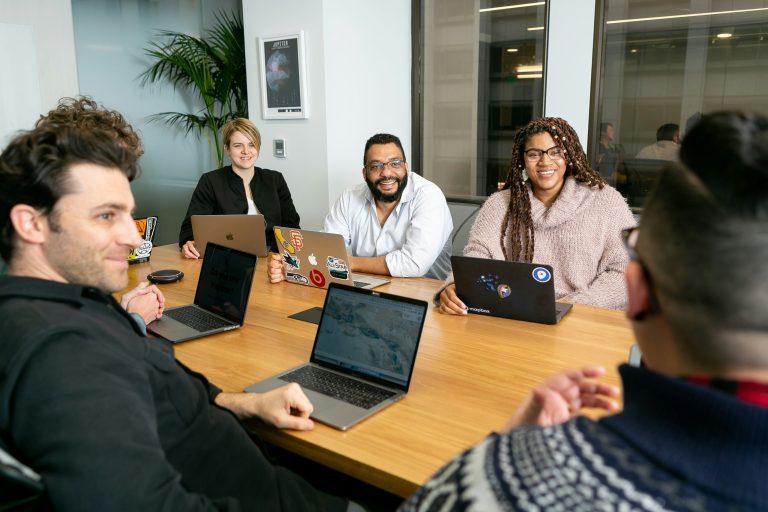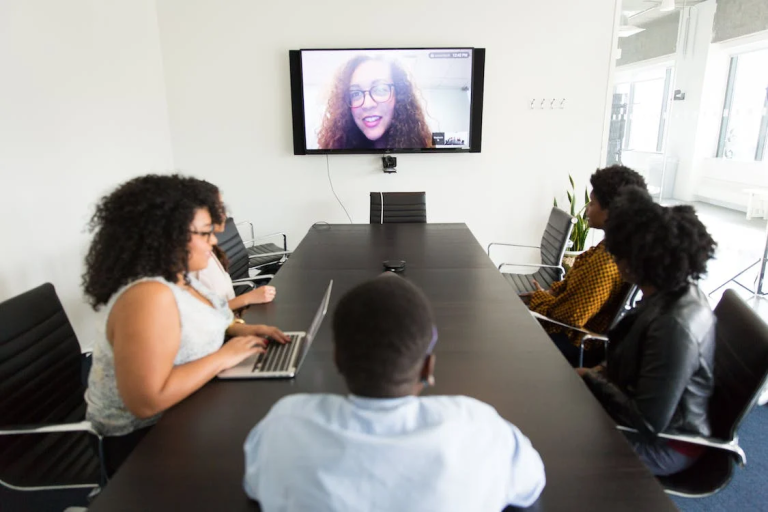The Fourth Industrial Revolution brings about great change, driven by the interdependent forces of artificial intelligence, the Internet of Things (IoT), network-based logic, machine learning, augmented and virtual reality and quantum computing. This has led to many CEOs making digital initiatives their top priority. But for CEOs in Africa the path is less clear.
African CEOs identify insufficient understanding of the disruptive changes as the single biggest obstacle to future workforce planning, followed by resource constraints and insufficient alignment of their organisations’ talent strategies with their own innovation strategies.
These are some of the highlights from a review by PwC on Africa’s Workforce of the future. The review looks at the competing forces – including automation and digital – and how they are set to impact Africa’s workforce and what organisations can expect in the next decade. It also sets out recommendations for CEOs in Africa to prepare for the future workforce.
By 2030, Africa will be home to more than a quarter of the world’s population under the age of 25, which will make up 60% of the continent’s total population. By then, 15% of the world’s working population will reside in Africa. The change in demographics suggests that Africa will need to expand its pool of highly-skilled employees through the development of cognitive STEM-based skills (science, technology, engineering and mathematics) and non-cognitive soft skills like sense-making and social intelligence competencies.
Barry Vorster, Director at PwC’s People & Organisation, says:
“Every future of work scenario is impacted by digital and automation technologies, leaving many workers around the world feeling anxious about losing their jobs to automation. These are highly integrated and complex feedback loops between technology, systems, jobs and skill requirements.
“Although Africa will experience significant technological disruption, this also presents an opportunity for the continent to drive inclusion and economic growth, through the utilization of future-ready strategies for job creation.”
Forces that are shaping the workforce of the future
The shape that the workforce of the future takes will be the result of complex, changing and competing forces. Businesses, governments and individuals need to be prepared for several possible outcomes.
While CEOs in Africa have identified various initiatives to build a technology-ready workforce, PwC has framed possible scenarios in which the future of work could play out. The megatrends identified by PwC are the major forces reshaping society and with it, the world of work: technological breakthroughs, the shift in global economic power, demographic shifts, rapid urbanization, resource scarcity and climate change. How organisations and individuals respond to the challenges and opportunities which the megatrends bring will determine the world in which the future of work plays out.
How digital is changing work
The digital age has advanced the speed of change and impacting all industries. The Internet of Things (IoT), machine learning and digital manufacturing are leading a technological revolution, reshaping business models and ways of doing business.
These are some of the competing forces changing the world:
- Blockchain’s impact on digital identity and credentialisation;
- Augmented and virtual reality’s ability to elevate ‘experience’ to a new dimension;
- Quantum technology’s potential to intensify such trends resulting in limitless capacity and efficiencies.
What Africa can expect in the next decade
The Fourth Industrial Revolution ushers in new business models and new ways of working that require critical new technical, digital and soft skills. Those skills are in short supply.
PwC’s annual Global CEO Survey reveals key trends and highlights regarding the global and local business climate, in which the workforce of the future is highlighted as a threat to growth. African CEOs cite insufficient understanding of the disruptive changes underway as the single biggest obstacle to future workforce planning and growth. Resource constraints and insufficient alignment of their organisation’s talent strategies with their broader innovation strategies remain challenges.
According to our 2020 annual CEO survey, CEOs agree that retraining/upskilling is the best way to close the skills gap, but they are not making much headway in tackling the problem with only 18% of CEOs globally and 6% of South African CEOs saying they have made ‘significant progress’ in establishing an upskilling programme. This sentiment is echoed by employees.
CEOs should prioritise education and upskilling for the future to enable their workforces to succeed. It is positive to note that 60% of African CEOs have implemented continuing learning initiatives that include digital technologies, and 56% have developed workforce plans that identified new skills and roles needed as a result of digital technologies.
The Four Worlds of Work in 2030
While CEOs in Africa have identified initiatives to build a technology-ready workforce, PwC’s report presents four future scenarios – or worlds – for work in 2030, to demonstrate the possible outcomes that might evolve over the next ten years due to the impact of megatrends, artificial intelligence, and automation:
- The Yellow World – where humans come first;
- The Red World – where Innovation rules;
- The Green World – where companies care;
- The Blue World – where corporate is king.
Luizet Ruzow, Strategy & Partner, leading Strategic Business Transformation capability in SA, adds:
“The employees of the future are diverse in their profiles and organisations need to be agile in order to attract and retain this new workforce. Companies that innovatively rethink their organisational design, in a digitally-enabled world, will have a competitive advantage.”
Africa’s workforce of the future
According to global research Africa’s education systems rank considerably below the global average, suggesting that learners are not obtaining the knowledge and skills required for today’s economies. This is further corroborated by business leaders’ concerns about the difficulty of finding skilled workers for their businesses.
The workforce of the future will cause many challenges for organisations but it will also present many opportunities. Increases in automation and changes in demographics will make it more difficult for organisations to attract and retain the skilled talent they need to keep pace with the speed of technological change. They will have to grow their own future workforce.
Once employers in Africa understand their capacity and capability requirements, they will need to take a proactive and integrated approach to attracting new skills and developing the existing workforce by way of upskilling programmes and collaboration with various academic institutions to lessen the impact of disruption to the workforce.
Many companies are desperately searching for suitable candidates to fill their existing job vacancies. Meanwhile, overqualified and under-skilled workers do not, or no longer, have the relevant skills sets required to fulfill specific roles. To tackle this issue, PwC has been extensively researching the working environment and has developed the Skills Expander solution to help industry leaders and national representatives grow a competitive pool of talent to drive innovation.
The integrated Skills Expander ecosystem has been developed to support organisations in defining their future workforce, considering the impact of digital technologies on the organisation’s strategy. Skills Expander outlines strategies, actions and policies that enable government, business and society to work together to ensure a sustainable and prosperous future for all.
Ruzow goes on to add:
“To be successful in the future, companies and their people need to be comfortable operating in an environment where change is the only constant.”
There are numerous benefits of upskilling. These include:
- Retention of employees – investing in your employees’ learning development sends them the message that they are worth the investment;
- Succession planning – provides employees with training, knowledge, and experience to step into leadership roles;
- Talent attraction – an upskilling culture attracts talent that values learning opportunities;
- Increased productivity – upskilling provides employees with additional skills that will lead to completing tasks quicker;
- Employee satisfaction – investing in your employees makes them feel valued and important to the organisation increasing their satisfaction;
- Creates a culture of learning – through continual learning, organisations can create a learning culture which leads to greater success and knowledge.
Recommendations for Africa business leaders
- Skills, partnerships and opportunities: Employees should be prepared for future opportunities and the skills required for a workforce of the future. Employers should partner with institutions of learning to prepare for a disruptive future.
- Nurture the right skills: By attracting and nurturing the right talent, leaders will be able to correctly capitalise on the right skill.
- Importance of the human element: The human element is of great importance as the nature of jobs changes regularly.
- Improve workforce digital IQ: The retraining and upskilling of the existing workforce in terms of digital technologies is crucial.
- Flexibility allows creativity to flourish: Plan for a dynamic future and ensure adaptability.
- Experiment: Be the driver and optimise challenges to push change.


























